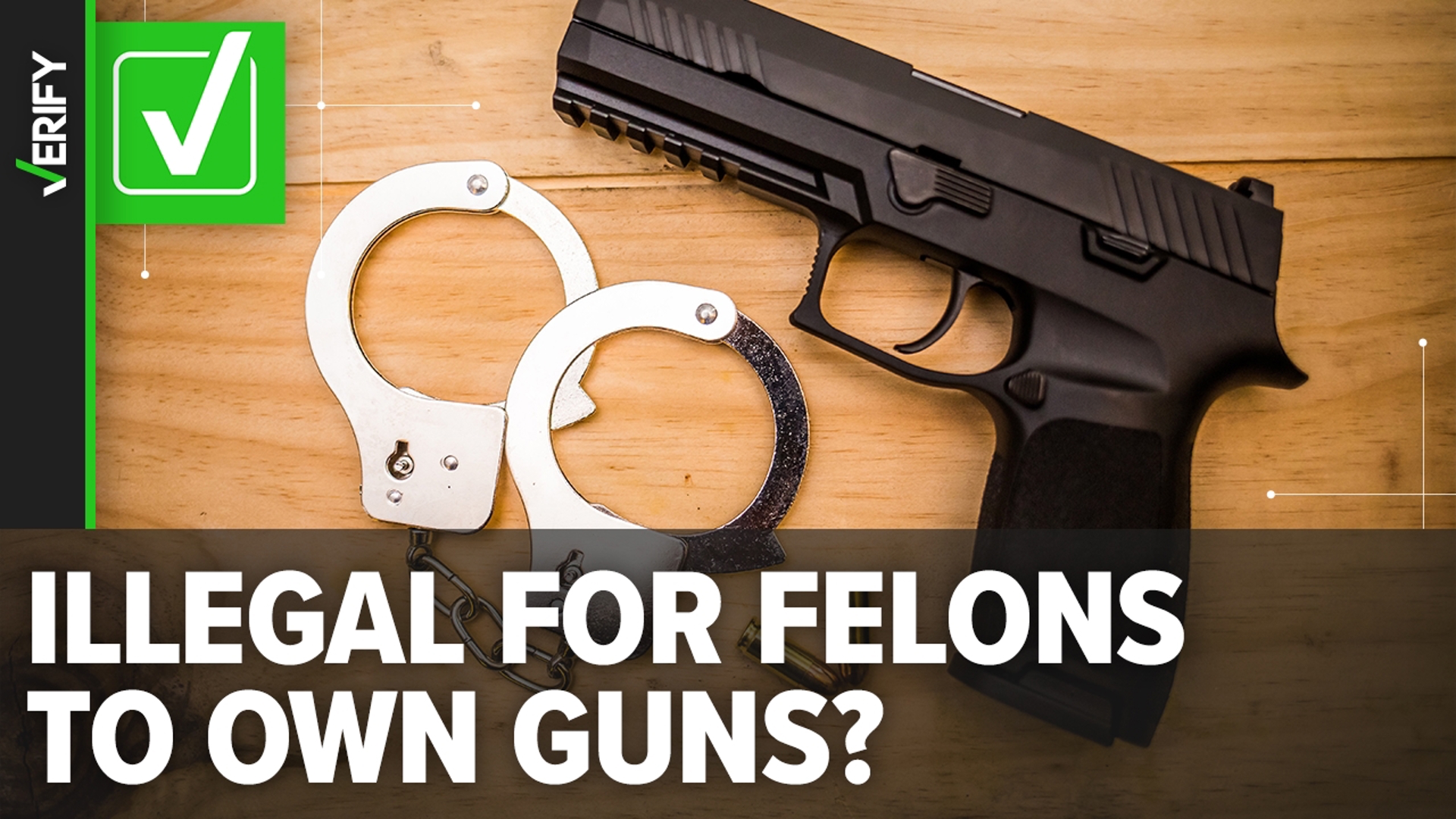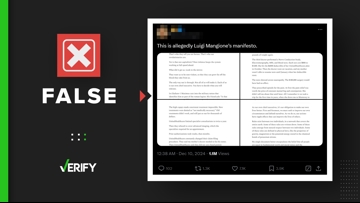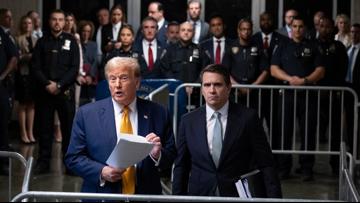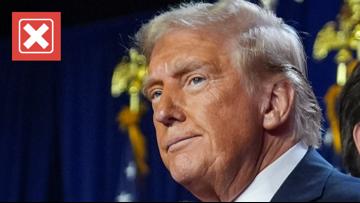Former President Donald Trump was recently convicted on 34 felony counts of falsifying business records in his New York hush money trial.
The conviction has led to many questions about what the 2024 presidential candidate can and cannot legally do as a felon.
Some people on social media claimed federal law bars Trump from owning a gun after his felony conviction. Several VERIFY readers, including John, asked if that’s true.
THE QUESTION
Does federal law ban convicted felons from owning guns?
THE SOURCES
THE ANSWER
Yes, federal law bans most convicted felons from owning guns, but there is an exception for convictions related to business practices.
WHAT WE FOUND
Under federal law, a person cannot legally receive or possess firearms if they have been “convicted in any court of a crime punishable by imprisonment for a term exceeding one year.” Crimes that carry this prison sentence are usually felonies, with few exceptions.
The ban on gun ownership applies to convictions that occur in state or federal courts, and it doesn’t matter how much time a person actually spends in prison, if any, attorney Rebecca Pirius wrote in an article in the online legal guide Nolo.
The falsifying business records charges that Trump was convicted of, which are class E felonies in New York, each carry a punishment of up to four years in prison, though legal experts believe it is unlikely that Trump will actually serve any time behind bars.
There is an exception to the federal ban on gun ownership for convicted felons. Under federal law, a “crime punishable by imprisonment for a term exceeding one year” does not include “any federal or state offenses pertaining to antitrust violations, unfair trade practices, restraints of trade, or other similar offenses relating to the regulation of business practices.”
That calls into question whether Trump’s New York conviction for falsifying business records actually disqualifies him from owning guns at the federal level, Duke University’s Center for Firearms Law explains. It will likely be up to a judge to decide.
State laws on gun ownership for convicted felons
State laws on gun ownership for convicted felons often overlap with or expand on the federal ban, according to Pirius.
For example, state law in New York, where Trump was convicted, forbids people from owning guns if they have been “convicted of a felony or serious offense.”
Florida, where Trump lives, also bans people convicted of felonies from possessing guns.
The laws in New York and Florida don’t spell out an exception for felonies related to business practices, like federal law does.
In a 2012 interview with the Washington Times, Trump said he received a concealed-carry permit from New York City and owned handguns. It’s unclear whether Trump still owns any guns, but sources told the New York Times, ABC News and other media outlets that the New York Police Department plans to revoke Trump’s gun license following his conviction.
Gun rights can be restored in some cases
People convicted of felonies can have their gun rights restored in some cases, though Pirius said this “tends to be a tricky area.”
Federal law can allow someone’s gun rights to be restored if they have received a pardon, had their civil rights restored, or had their conviction expunged or set aside. If a person has their civil rights restored, they essentially regain “the ability to participate fully in civic life, which includes voting, serving on a jury, holding public office and owning firearms,” Oregon-based Lohrke Law says on its website.
States also have processes in place to restore a person’s gun rights after they are convicted of a felony.
For example, New York and many other states may return gun rights to certain convicted felons after a waiting period. New York also allows people to apply for restoration of their rights if they have not been convicted of multiple felonies.
Depending on the circumstances, people whose gun rights are restored in New York may also have their rights returned to them under federal law, allowing them to buy guns in other states, Rosenblum Law explains in an article.
This story is also available in Spanish / Lee este artículo también en español: Sí, las leyes federales prohíben que la mayoría de los criminales convictos posean armas












